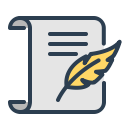Decoding the German Translation Industry: A Comprehensive Guide to Costs, Opportunities, and Challenges

The translation industry is a vast and dynamic field that connects cultures, bridges communication gaps, and fuels global trade. One language that plays a significant role in this industry is German.
German translation has seen a surge in demand due to Germany's robust economy, influential cultural heritage, and its critical role in the European Union.
Get an Estimate for a German Translation Now
Understanding the Cost of German Translation Services
When it comes to the cost of German translation services, several factors come into play. These can range from the complexity and technicality of the text to the deadline, the translator's experience, and even the specific dialects involved.
1. How much do German translation services cost in Germany? The cost of German translation services in Germany varies widely based on the aforementioned factors. On average, the rates can range from $0.10 to $0.25 per word.
2. How much is cost-per-hour for a German translator? Hourly rates for a German translator can differ based on their experience and expertise. As of now, the average hourly rate could range between $30 to $50 per hour.
3. How much does a 1000-word German translation cost? If we take the per-word cost into consideration, a 1000-word German translation project might cost anywhere from $100 to $250.
However, prices can increase if the document requires specialized knowledge or a quick turnaround.
4. How much does it cost to translate 10,000 words in German? For a larger project like a 10,000-word document, the cost could range from $1,000 to $2,500. Keep in mind, volume discounts might be available for such substantial assignments.
5. How much is 1 page of German translation? A single page of German translation, considering an average of 250 words per page, might cost between $25 and $62.5. Again, the price can vary depending on the complexity of the text and other factors.
Understanding the cost of German translation services is crucial for both clients and translators. It not only helps in budgeting and project planning but also in ensuring fair compensation for the skilled work that translators do.
Official German Translation Services in Germany
The landscape of German translation services in Germany is both diverse and robust. Services range from solo, independent translators to large, well-established translation agencies.
Official German translation services typically offer a variety of linguistic solutions. For instance, some agencies provide a wide array of services that span from simple document translations to more complex, certified translations required for official use.
Certain services specialize in specific areas, boasting technical, medical, and business translation expertise. These agencies often employ a large team of certified translators, ensuring high-quality and accurate translations.
Get an Estimate for a German Translation Now
There are also translation services that place a strong emphasis on business and technical translations. These agencies usually have robust systems and processes in place to ensure speedy and efficient service delivery.
These diverse translation services, and others like them, provide a comprehensive array of German translation solutions, catering to various sectors.
These include legal, medical, business, and technology sectors, among others. Each service has its own specialties, and choosing the right one largely depends on the specific requirements and context of your translation project.
The Pay Scale for German Translators
The pay scale for German translators can vary based on factors like experience, the complexity of the work, and geographic location.
1. How much does German to English translation pay? The average pay for German to English translation is usually between $0.10 to $0.25 per word. However, this can go up for more specialized translations or rush jobs.
2. What country pays German translators the most? Countries with a high demand for German translation, such as the United States, Switzerland, and Luxembourg, often offer higher pay rates. However, the cost of living in these countries should also be considered.
3. How much should I pay a German translator? The cost of hiring a German translator depends on the length and complexity of the text, the turnaround time, and the translator's experience. For a high-quality, professional translation, expect to pay within the average industry range mentioned earlier.
4. Do German translators make good money? Yes, professional German translators can make a good income, especially if they specialize in technical fields such as law, medicine, or technology. Additionally, certified translators who can provide official translations often command higher fees.
5. Can you make a living off translating German? Yes, many people make a comfortable living as German translators. However, like any profession, it takes time to build up a client base and gain experience.
Specializing in a certain field and gaining certification can also significantly boost earnings.
Overall, German translation can be a rewarding and lucrative profession for those with the necessary skills and dedication.
Efficiency and Volume of German Translation
When it comes to the efficiency and volume of German translation, there are a few standards in the industry.
1. How much German translation can a translator do per day? On average, a professional translator can translate about 2,000 to 3,000 words per day. However, this can vary based on the complexity of the text and the translator's familiarity with the topic.
2. How much does 30 an hour translate to in terms of German translation? If we consider the average translation speed of a professional translator, which is around 250-300 words per hour, then a translator could roughly translate 7,500 to 9,000 words in a 30-hour period.
Please note that these are rough estimates and actual figures can vary depending on the complexity of the text and other factors.
Get an Estimate for a German Translation Now
German Translation Tools: Is There Anything Better than Google Translate for German?
While Google Translate is a popular tool for quick and basic translations, it may not always be the best choice for German translation.
1. Is Google Translate 100% right when translating German?
While Google Translate is continuously improving, it is not 100% accurate, especially with languages as complex as German. It often struggles with idiomatic expressions, complex grammar structures, and context-based translations. For professional or official translations, it is recommended to use a human translator.
2. Potential Alternatives to Google Translate for German Translation
There are numerous alternatives to Google Translate that may deliver more precise translations when it comes to German. Some of these alternatives excel in handling the nuances of context and grammar, offering a more comprehensive and accurate translation compared to automated solutions.
Other tools provide translations within context, utilizing reliable sources to ensure translation accuracy. This approach can be particularly helpful with complex languages like German, where context can significantly influence the meaning.
Furthermore, there are also professional-grade software tools that offer advanced features tailored to professional translators. These tools can enhance productivity, accuracy, and consistency, especially for large translation projects.
However, it's important to remember that even with the most advanced tools, human translation remains the gold standard, particularly for professional or formal contexts.
The human touch is invaluable in capturing the subtleties, cultural nuances, and context that automated translation tools may miss.
The Demand for German Translators and High-Paying Languages
The market for translation services is constantly evolving, with shifts in demand for various languages, including German.
1. Are German translators in demand in Germany? Yes, there is a high demand for German translators in Germany. This is due in part to the country's strong economy and its role as a hub for international business in Europe.
2. Which language is highly paid for translation, including German? High-paying languages for translation often include those that are less common and more complex, such as Arabic, Japanese, and Danish.
German is also among the higher-paying languages due to its demand in the business and technical sectors.
3. What is the most needed foreign language, including German? The most needed foreign languages for translation vary depending on the region and industry. However, Spanish, Mandarin, Arabic, French, and German are among the most sought after due to their widespread use and economic influence.
4. Which language, including German, has high demand in future? Future demand for languages can be hard to predict, but those associated with fast-growing economies or emerging markets are likely to be in high demand. This includes languages like Mandarin, Arabic, and Spanish. German is expected to remain in high demand given Germany's continued influence in global business and technology sectors.
Get an Estimate for a German Translation Now
Learning German for Profit and Career
Learning a new language can open up a wealth of opportunities, both in terms of career and profit.
1. Is German the most profitable foreign language to learn? While the profitability of learning a foreign language can depend on many factors, German is often cited as one of the most profitable languages to learn due to Germany's strong economy and high demand for German translators and interpreters.
2. Can I earn money by translating German? Yes, there is potential to earn money by translating German. Professional translators, especially those with specializations or certifications, can earn a good income in this field.
3. Is German the best European language to learn for a job? Whether German is the best language to learn for a job depends on the specific job or industry. However, given Germany's economic influence in Europe and the high demand for German speakers in sectors like business, technology, and manufacturing, learning German can certainly open up job opportunities.
4. How much time does it take to learn German? The amount of time it takes to learn German can vary widely based on your native language, the intensity of study, and the level of proficiency you aim to achieve.
On average, it takes about 750-900 classroom hours to reach fluency in German according to the Foreign Service Institute. This translates to about 30 weeks of intensive instruction, although self-study or casual learning can extend this timeframe.
Moving to Europe: Is German the Best Language to Learn?
When considering a move to Europe, the choice of language to learn can depend on various factors such as the specific country of residence, your professional field, and personal interests.
1. Is German the best language to learn if you move to Europe? While English remains widely spoken across Europe, learning the local language can significantly improve your experience and opportunities.
If you plan to live in Germany, Austria, or parts of Switzerland, Belgium, and Liechtenstein, German is indeed the best language to learn. Even in other parts of Europe, German can be beneficial due to Germany's economic influence and the large number of German speakers across the continent.
Get an Estimate for a German Translation Now
As we delve into the realm of German translation, it becomes evident that the industry is rife with opportunities yet not without its challenges.
Understanding the landscape of German translation services, the costs involved, and the potential income can provide a clear view of the sector for those interested in either using these services or making a career in the field.
Importantly, while technology continues to evolve and improve the speed and efficiency of translation, the human translator's role remains crucial for accuracy, especially for complex languages like German.
Finally, the demand for German translators, the profitability of learning German, and the potential for career advancement in this field emphasize the significance of this industry.
With the right skills, dedication, and understanding of the market, German translation offers a rewarding and lucrative profession.
At TripleTrad, we are passionate about helping your business and projects gain publicity and new audiences both locally and internationally.
If you have any questions about our professional translation services, reach out to us at +1 212-203-0301. You can also contact us via live chat. 🙂
Get an Estimate Now
You might also be interested in:

Certified Translation Services

Accurate Translation Services

Fast Response Time: We Live in the Future
Projects to date
5720
Language combinations
312
Team members across the planet
1200
Happy clients worldwide
3245
WHO WE SERVE
TripleTrad is a thriving business with over 10 years of delivering comprehensive translation services across 300 languages to both fledgling and long-established organizations. Our services have assisted companies in fields such as:
- Advertising, Architecture
- Design, Education, Engineering
- Financial, Legal
- Manufacturing, Medical
- Multimedia, Technology
What clients say about us
"Reliable service"
96%
"Amazing turnaround time"
93%
"Accurate"
94%

Professional Translation Services

Reliable Support




























